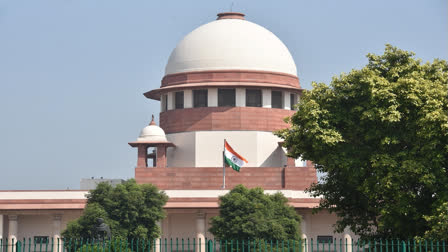Arguably, reservations in education and employment are one of the thorniest issues in India's non-discrimination and equality law. Lines of dissension deepened a little further when earlier this week, the Supreme Court of India pronounced its verdict in State of Punjab v. Davinder Singh ('Davinder Singh') validating sub-classification within the Scheduled Castes ("SCs") and Scheduled Tribes ("STs") for the purpose of reserving seats in educational institutions and public employment.
This ruling came via a Constitution Bench of the Supreme Court comprising seven judges – such benches of more than five judges are constituted when matters involve substantial questions concerning the interpretation of the Constitution. What were the constitutional concerns at stake in this particular case?
A. Unpacking the issue
The controversy in Davinder Singh, which was heard by the Supreme Court between 6-8 February 2024, arose in 1975, when the government of Punjab issued a notification dividing its existing 25% reservation for SCs (in education and employment) into two categories – while half of these seats reserved for SCs were to be offered to Balmikis and Mazhabi Sikhs, the rest were reserved for the remaining groups under the SC category.
This notification stayed put till 2004, until the decision of the Supreme Court in E.V. Chinnaiah v. State of Andhra Pradesh [(2005) 1 SCC 394/ 'E.V. Chinnaiah'], which held that the SCs and STs lists signify a homogenous group, and ruled against any further classification or grouping within the SC/ST list.
In the specific context of SCs, Article 341, clause (1) of the Constitution gives the President of India the power to notify which castes, races or tribes (or groups therein) shall be deemed to be SCs in relation to a State or Union territory. The bench of five judges in E.V. Chinnaiah held that any sub-classification within SCs by any State Government would tinker with the Presidential notification (or the “Presidential list”) under Article 341(1), which is constitutionally impermissible.
Given the Supreme Court’s decision in E.V. Chinnaiah, the 1975 notification was invalidated by the Punjab and Haryana High Court. To surpass these judicial decisions, the Punjab government enacted a law called the Punjab Scheduled Castes and Backward Classes (Reservation in Services) Act, 2006. A law meant to provide for reservation in services for the members of the SCs and Backward Classes, it stipulated under Section 4(5) that 50% of the vacancies of the quota reserved for the SCs in direct recruitment shall be offered to Balmikis and Mazhabi Sikhs, if available, as a first preference from amongst the SCs. This specific provision – Section 4(5) – was eventually held invalid by the Punjab and Haryana High Court in 2010.
This decision of the Punjab and Haryana High Court was eventually appealed before the Supreme Court. The case was referred to a five-judge Constitution Bench which, among other things, was to decide if the 2005 ruling in E. V. Chinnaiah had to be reconsidered. In 2020, hearings began, but because a Constitution bench cannot overrule a previous decision by a bench of the same strength, the matter was referred to a higher bench (E. V. Chinnaiah was also decided by a five-judge bench). The matter was listed for hearing by a seven-judge bench in 2023, which hearing finally transpired in February 2024.
B. The stakes involved
On 1 August 2024, by an overwhelming majority of 6:1, the Supreme Court permitted states to create sub-classifications within the SCs and STs for according greater protections to the most backward communities within these categories. Chief Justice of India (‘CJI’) D.Y. Chandrachud wrote a judgment for himself and Justice Manoj Mishra. Justices B.R. Gavai, Vikram Nath, Pankaj Mithal, and S.C. Sharma wrote separate but concurring opinions. Justice Bela M. Trivedi was the sole dissenter. How did these opinions fare on specific aspects of law and the Constitution?
All Scheduled Castes a homogenous unit?
A critical issue at stake in this case was whether all castes in the list of SCs are to be treated similarly. As mentioned above, Article 341(1) empowers the President to notify specific castes as SCs. Following such notification, the Constitution mandates that only Parliament can include or exclude any caste, race or tribe from the list of SCs. Through the Davinder Singh judgment, CJI Chandrachud rejected the argument that all castes in a certain SC list are to be treated similarly.
In paragraph 112 of the judgment, he categorically mentions that – first, the inclusion of certain castes within the SC category is only to demarcate them from other castes which are not included in the category, and second, such inclusion does not automatically lead to the formation of a uniform and internally homogenous class which cannot be further classified. In fact, the CJI relied on historical and empirical evidence to establish heterogeneity among SCs, to drive home the point that SCs are not a homogenous class unto themselves. At paragraph 140, he alludes to a study that revealed how certain Dalit castes practiced untouchability against other Dalit castes, and how in certain parts of the country lower sub-castes were denied entry into Dalit temples.
The CJI, in particular, remained cognizant of and brought attention to the internal differences among SCs. Drawing on similar such evidence, effectively, the Supreme Court rejected the finding in E. V. Chinnaiah of treating all SCs identically, without accounting for their relative backwardness.
